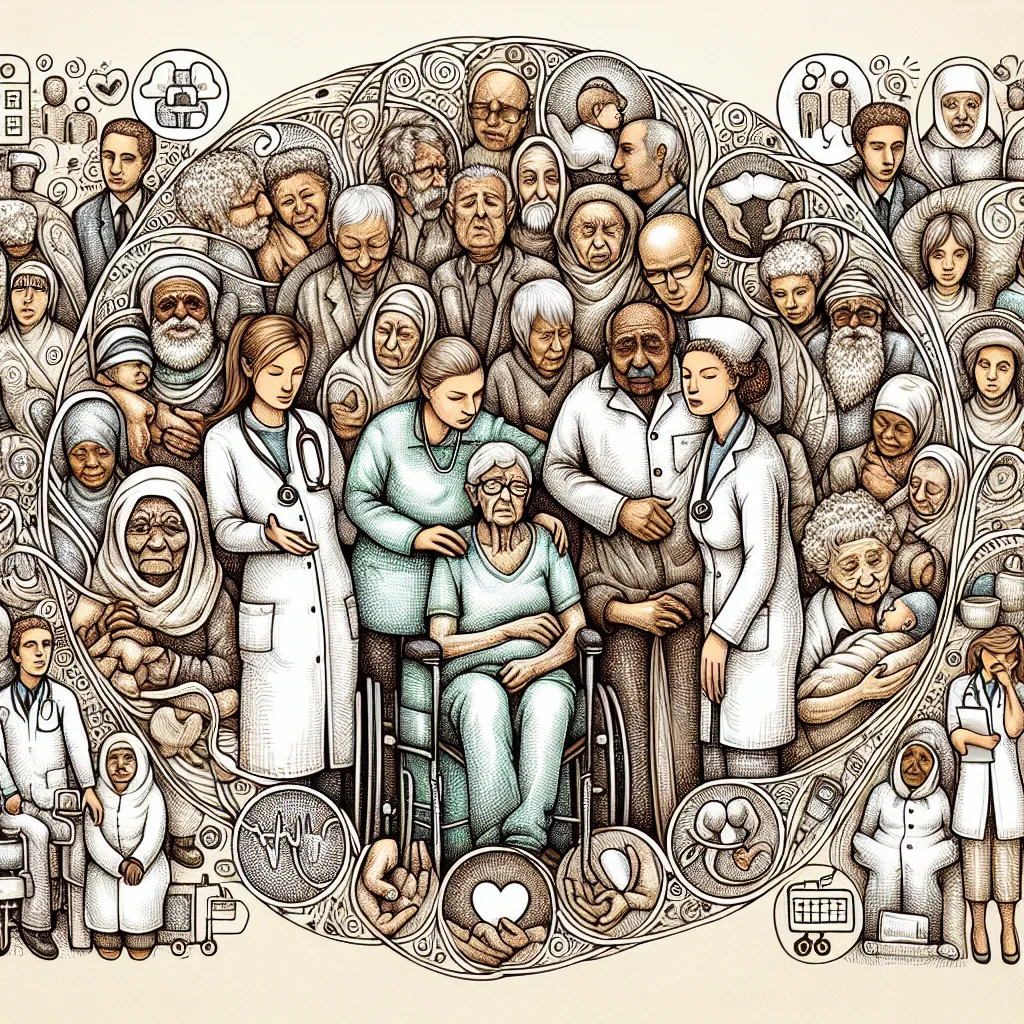In recent years, the topic of digital literacy has become increasingly prevalent in IELTS Writing Task 2 essays. This subject is particularly relevant in our rapidly evolving digital age, where young people’s ability to navigate and utilize technology effectively is crucial. Let’s explore this topic through sample essays and in-depth analysis to help you prepare for your IELTS exam.
Nội dung bài viết
Analyzing the Topic
The question of how to promote digital literacy among young people is a timely and important one. It touches on education, technology, and social development, making it an ideal subject for IELTS Writing Task 2. Based on trends in recent IELTS exams, we can expect to see more questions related to digital literacy and its impact on society.
Let’s consider the following question, which is representative of the type you might encounter in your IELTS exam:
In today’s digital age, many young people lack essential digital literacy skills. What are the reasons for this, and what measures can be taken to improve digital literacy among youth?
Understanding the Question
This question requires you to discuss two main points:
- The reasons why many young people lack digital literacy skills
- Measures that can be taken to improve digital literacy among youth
It’s important to address both parts of the question in your essay to achieve a high score.
 Digital Literacy for Youth
Digital Literacy for Youth
Sample Essay 1 (Band 8-9)
In the contemporary digital landscape, it is paradoxical that many young people, often referred to as “digital natives,” lack fundamental digital literacy skills. This essay will explore the reasons behind this phenomenon and propose measures to enhance digital proficiency among youth.
The primary cause of inadequate digital literacy among young people is the misconception that mere exposure to technology equates to competency. While today’s youth are adept at social media and entertainment applications, they often lack skills in areas such as information evaluation, digital security, and productive software use. Additionally, the rapid evolution of technology outpaces many educational curricula, leaving schools struggling to provide up-to-date digital education.
To address this issue, a multi-faceted approach is necessary. Firstly, educational institutions must integrate comprehensive digital literacy programs into their core curricula. These programs should go beyond basic computer skills to include critical thinking in digital contexts, understanding of digital rights and responsibilities, and proficiency in professional digital tools. Secondly, governments and tech companies should collaborate to provide resources and training for educators, ensuring they are equipped to teach these essential skills effectively.
Moreover, promoting digital literacy should extend beyond formal education. Community initiatives, such as coding clubs or digital workshops, can provide additional avenues for young people to develop these skills. Parental involvement is also crucial; educating parents about digital literacy can create a supportive environment for young people to explore and learn about technology responsibly.
In conclusion, while the reasons for the lack of digital literacy among youth are complex, they are not insurmountable. By implementing comprehensive educational programs, providing resources for teachers, and fostering a culture of digital learning both in and out of school, we can significantly improve digital literacy among young people. This approach will not only enhance their academic and professional prospects but also prepare them to be informed and responsible digital citizens in an increasingly connected world.
(Word count: 309)
Analysis of Band 8-9 Essay
This essay demonstrates excellent qualities that align with Band 8-9 criteria:
-
Task Response: The essay fully addresses all parts of the task, providing a well-developed response with relevant, extended and supported ideas.
-
Coherence and Cohesion: The essay is cohesive and progresses logically, using a range of cohesive devices effectively.
-
Lexical Resource: It uses a wide range of vocabulary with very natural and sophisticated control of lexical features.
-
Grammatical Range and Accuracy: The essay uses a wide range of structures with full flexibility and accuracy.
Key strengths:
- Clear introduction that addresses the question directly
- Well-developed paragraphs with clear main ideas and supporting details
- Sophisticated vocabulary (e.g., “paradoxical,” “multi-faceted approach”)
- Complex sentence structures
- Strong conclusion that summarizes main points and provides a broader perspective
Sample Essay 2 (Band 6-7)
In today’s world, many young people don’t have good digital literacy skills. This essay will discuss why this happens and suggest some ways to improve it.
One reason why young people lack digital literacy is that they mostly use technology for fun, not for learning. They spend a lot of time on social media and games, but don’t know how to use computers for work or study. Another reason is that schools don’t always teach digital skills well. Some teachers don’t know much about technology themselves, so they can’t teach students properly.
To improve digital literacy among youth, schools should start teaching it from an early age. They should have special classes about using computers for work and study, not just for entertainment. Also, teachers need to be trained better in digital skills so they can teach students well.
Another way to help is for parents to learn about digital literacy too. If parents understand technology better, they can guide their children on how to use it wisely. Companies that make technology could also help by creating educational programs for young people.
In conclusion, young people need better digital literacy skills for their future. By improving education in schools, training teachers, and getting parents involved, we can help young people become more digitally literate. This will help them in their studies and future jobs.
(Word count: 228)
Analysis of Band 6-7 Essay
This essay demonstrates qualities that align with Band 6-7 criteria:
-
Task Response: The essay addresses all parts of the task, though some parts are more fully covered than others.
-
Coherence and Cohesion: The essay is generally well-organized, with clear progression throughout.
-
Lexical Resource: It uses an adequate range of vocabulary for the task, with some attempts at more sophisticated words.
-
Grammatical Range and Accuracy: The essay uses a mix of simple and complex sentence forms with generally good control.
Key strengths:
- Addresses both parts of the question
- Clear paragraph structure
- Some use of more advanced vocabulary (e.g., “digital literacy”)
Areas for improvement:
- Could provide more specific examples
- Could use a wider range of cohesive devices
- Could demonstrate more sophisticated vocabulary and grammatical structures
Key Vocabulary to Remember
-
Digital literacy (noun) /ˈdɪdʒɪtl ˈlɪtərəsi/ – The ability to use digital technology effectively and appropriately
-
Proficiency (noun) /prəˈfɪʃənsi/ – A high degree of skill or expertise
-
Curriculum (noun) /kəˈrɪkjələm/ – The subjects comprising a course of study in a school or college
-
Integration (noun) /ˌɪntɪˈɡreɪʃn/ – The act of combining or adding parts to make a unified whole
-
Initiative (noun) /ɪˈnɪʃətɪv/ – An act or strategy intended to resolve a difficulty or improve a situation
-
Comprehensive (adjective) /ˌkɒmprɪˈhensɪv/ – Including or dealing with all or nearly all elements or aspects of something
-
Evolve (verb) /ɪˈvɒlv/ – Develop gradually, especially from a simple to a more complex form
-
Paramount (adjective) /ˈpærəmaʊnt/ – More important than anything else; supreme
-
Implement (verb) /ˈɪmplɪment/ – Put (a decision, plan, agreement, etc.) into effect
-
Collaborative (adjective) /kəˈlæbərətɪv/ – Produced by or involving two or more parties working together
Conclusion
Mastering IELTS Writing Task 2 essays on promoting digital literacy among young people requires a strong understanding of the topic and the ability to articulate ideas clearly and coherently. By studying these sample essays and analyzing their strengths, you can improve your own writing skills and prepare effectively for your IELTS exam.
Remember to practice writing your own essays on this topic. You might consider addressing questions such as:
- How has the rapid advancement of technology affected young people’s digital literacy?
- What role should governments play in promoting digital literacy among youth?
- How can digital literacy skills benefit young people in their future careers?
Feel free to share your practice essays in the comments section below. This active practice will help you refine your skills and gain valuable feedback. Good luck with your IELTS preparation!
If you found this article helpful, you might also be interested in our guide on how social media influences youth behavior, which explores another important aspect of young people’s interaction with digital technology.


